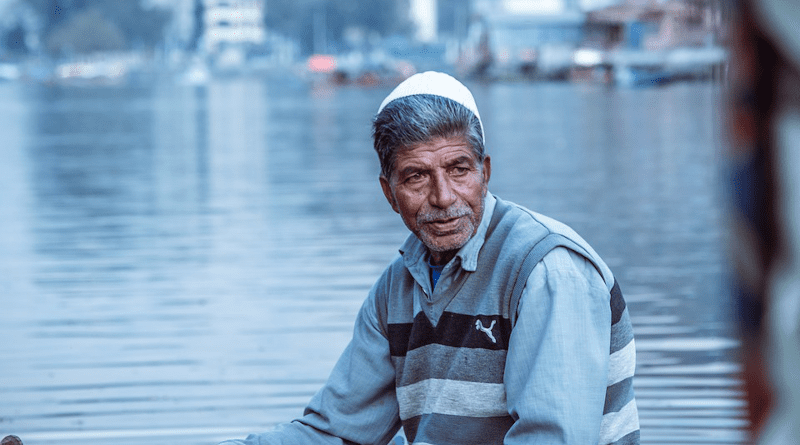People Of Jammu & Kashmir Say ‘No’ To Terrorism – OpEd
Being a firm believer in the adage ‘One swallow does not make a summer,neither does one fine day’ attributed to Aristotle, one avoided commenting on the prevailing conditions in Jammu and Kashmir [J&K] on the fourth ‘death anniversary’ of Article 370.
However, as August comes to an end, a review is appropriate, especially since two major events occurred during this month. In 1947, India attained independence on August 15 and 72 years thereafter, the temporary Article 370 of the Indian constitution was finally abrogated.
In accordance with Islamabad’s diktat, its proxies and the pro-Pakistan lobby in J&K refer to as “black days” and mark these events with ‘hartals’ [protests] through enforced ‘bandhs’ [shutdowns]. The sole aim of this contrived exercise is to try and fool the world into believing that people in &K are dissatisfied and want to merge with Pakistan.
So, as August 9 neared, Pakistan expectedly ratcheted up the Article 370 abrogation issue, and despite its financially precarious condition, spent thousands of dollars sponsoring protests abroad. It even hosted events for foreign diplomats in its embassies the world over in a bid to sell its puerile anti- Article 370 argument.
However, having already been summarily rejected both by UNSC and the international community four years ago, it’s not at all surprising that this propaganda campaign didn’t produce any positive results for Islamabad.
How could Islamabad ever expect anyone to believe that protests orchestrated by motley groups of a few hurriedly hired people and paid media reports was proof that its diplomatic offensive against Article 370 abrogation was a big success, defies comprehension!
In Kashmir Valley, a few shops did remain closed on August 9, but the perceptible absence of protesters out in the streets made it obvious that those who didn’t open their shops did so more out of fear of retribution rather than expressing solidarity with anti-Article 370 abrogation sentiments.
Similarly, this year’s Independence Day went off smoothly with the Indian Tricolour being proudly displayed across the entire Kashmir Valley. The separatist camp tried to play down this visible sign of celebration by alleging that locals were coerced to do this by the establishment, but this claim lacks credibility.
The incredulous assertion of the pro-Pakistan lobby can be effectively debunked through simple reasoning. If Islamabad is to be believed then “Kashmiris are caged like animals in homes,” and if this is indeed a fact, then why couldn’t the people of Kashmir be ‘compelled’ to display the Tricolour so enthusiastically in the past?
And who knows better that collective intimidation doesn’t work anymore than Islamabad, which has been unsuccessful in quelling public outrage despite application of brute force by the Pakistan army in Balochistan, Khyber Pakhtunkhwa and Pakistan occupied J&K [PoJK] for decades.
The positive changes that one is witnessing in Kashmir Valley are indeed encouraging.
Two years ago, Muzaffar Wani [father of slain Hizbul Mujahideen [HM] terrorist Burhan Wani] hoisted the Tricolour at a school in Pulwama district of J&K, and being a forthright person, Wani would have certainly complained if he had been intimidated.
Also, had Wani really been strong-armed into flying the Tricolour, then both Islamabad and separatists would have undoubtedly made a big issue out of this incident, but their stoic silence clearly suggests that no force was used.
This year, Rayees Mattoo, the brother of an active HM terrorist, hoisted the national flag at his Sopore residence in J&K ahead of Independence Day. By telling the media that “I waved the Tiranga [Tricolour] from my heart” and that “There was no pressure from anyone,” Matoo made it clear that he did so out of his own free will and not under duress.
Mattoo went on to say that “For the first time I am sitting at my shop on 14th August; it used to be shut for 2-3 days. The previous political parties were playing games.” Urging his brother “to come back,” Matoo made an incisive observation about how “The situation has changed [and] Pakistan can’t do anything…Hum Hindustani theh, hain aur rahenge [We were, are and will always remain Indians].” [Emphasis added].
What must have really affronted Islamabad and the separatist camp in J&K is not that that Matoo revealed the truth by saying “Pakistan can’t do anything,” but flourishing J&K’s complete integration with Union of India by using Dr Muhammad Iqbal’s famous lines “Saare jahaan se achha Hindustan humara, hum bulbule hain iske ye gulistan hamara,” [In the entire world, India is the best; we are its nightingales, and this garden is ours].
After all, wasn’t it Iqbal who in 1937 explicated his vision of a separate Muslim state to Pakistan’s founder Mohammad Ali Jinnah?


Congratulations Nilish, on a well-written article, with supporting news.!
I hope to visit Kashmir again on vacation.
Suren R. Toronto,Canada